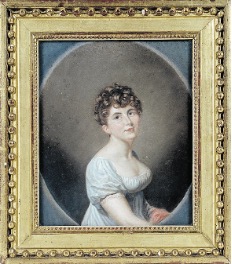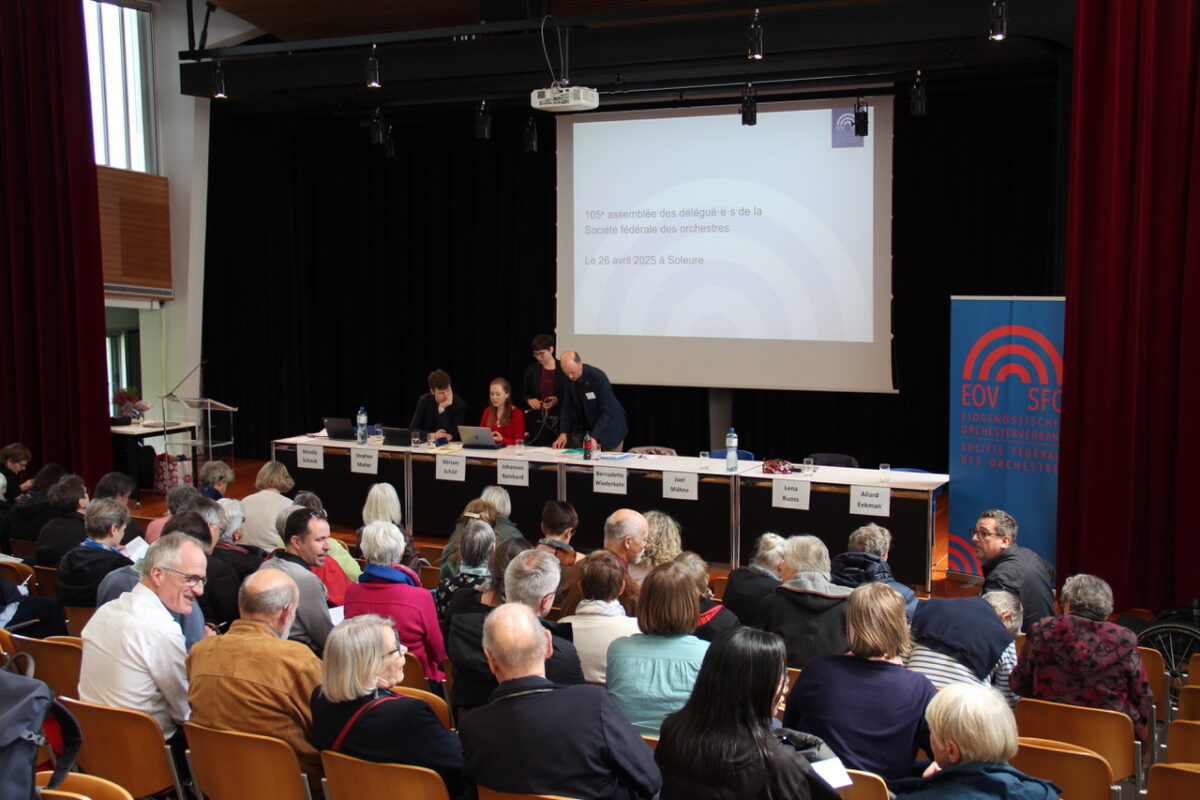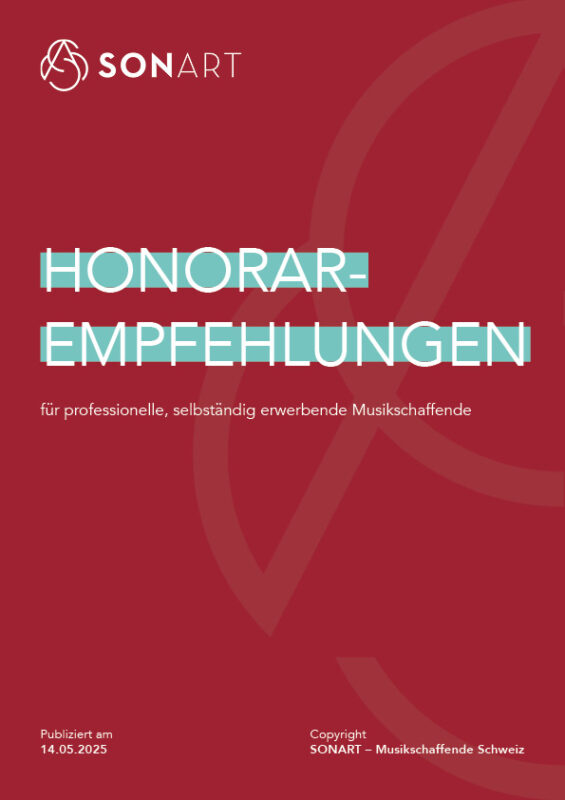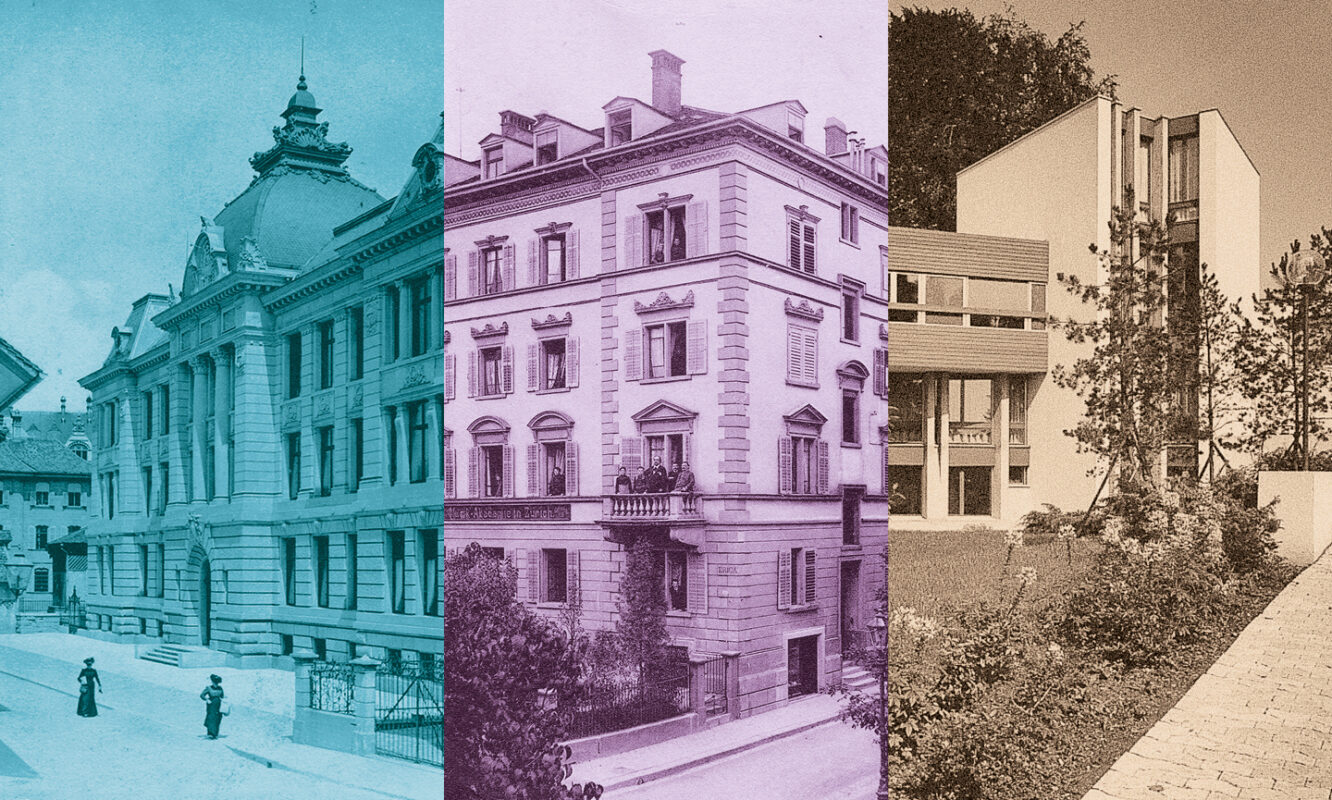Spring program of the Bern Section
The SMG Bern Section is once again offering an exciting and varied lecture program this spring.

Caroline Boissier-Butini, portrait by Firmin Massot (1766-1849), Geneva, c. 1808 (source: from private collection)
Music is the universal language of emotions. This is a widespread topos that is constantly gaining new impetus. But is it true? Can this be proven or disproven by empirical-analytical research methods? Melanie Wald-Fuhrmann is Professor and Director of the Music Department at the Max Planck Institute for Empirical Aesthetics and conducts research into music aesthetics, musical taste and various musical practices. In her lecture on March 7, she will outline the history of ideas behind this topos and present her own music-historical and ethnological study in relation to music and emotional expression.
1000 years of Gregorian chant in Einsiedeln
Einsiedeln Abbey has been a venue for musical events for centuries, especially Gregorian chant. In the 20th century, this long-standing tradition experienced a heyday with Father Roman Bannwart. On March 14, Stephan Klarer will talk about the thousand-year history of this liturgical music in Einsiedeln Abbey. Stephan Klarer is a lecturer in Gregorian chant at the ZhdK and won the Marta Walter Prize 2022 for his work on the same topic. He uses treasures from the monastery library to illustrate the musical history of Einsiedeln Abbey and discusses problems of performance practice today.
Music, politics, patriotism
Caiti Hauck, Marie Skłodowska Curie Fellow at the Institute of Musicology at the University of Bern, will give an insight into her research project on choral life in the cities of Bern and Fribourg on April 4. In the 19th century, choral societies were an important part of musical life in the cities. The clubs often took part in singing festivals or organized concerts and other activities. What role did politics and patriotism play in choral societies and how did they promote a sense of togetherness among the singers? Documents such as newspapers and club reports provide information on how society was reflected in the singing clubs.
Caroline Boissier-Butini
Who knows the composer Caroline Boissier-Butini? Born in Geneva in 1786, she received musical training from Franz Liszt and others. Musicologist Irène Minder-Jeanneret researches this extraordinary Swiss composer and presents her concert tours, in particular her stay in Bern in 1811. The lecture will be followed by a short concert with works by Caroline Boissier Butini, played by Emma Saskia Bähler and an ad hoc orchestra.
The first three lectures will take place at the Institute of Musicology, Mittelstrasse 43 and will also be made available via Zoom.
Melanie Wald-Fuhrmann: Music, the universal language of emotions? March 7, 6:30 p.m.
Stephan Klarer: 1000 years of Gregorian chant in Einsiedeln, March 14, 6.30 p.m.
Caiti Hauck: Music, politics, patriotism: choral societies in the cities of Bern and Fribourg in the long 19th century, April 4, 6.30 p.m.
Irène Minder-Jeanneret: Caroline Boissier-Butini, the Swiss composer who wrote six piano concertos, May 2, 6:30 p.m., Salon of the Grande Société (Theaterplatz)
Bern Medieval Center in cooperation with the SMG: Aurelia Brandenburg: Is it realistic to eat the Pope? The Middle Ages in the digital game". March 2, 5.15 p.m., Lecture Hall 220, Main Building, University of Bern








